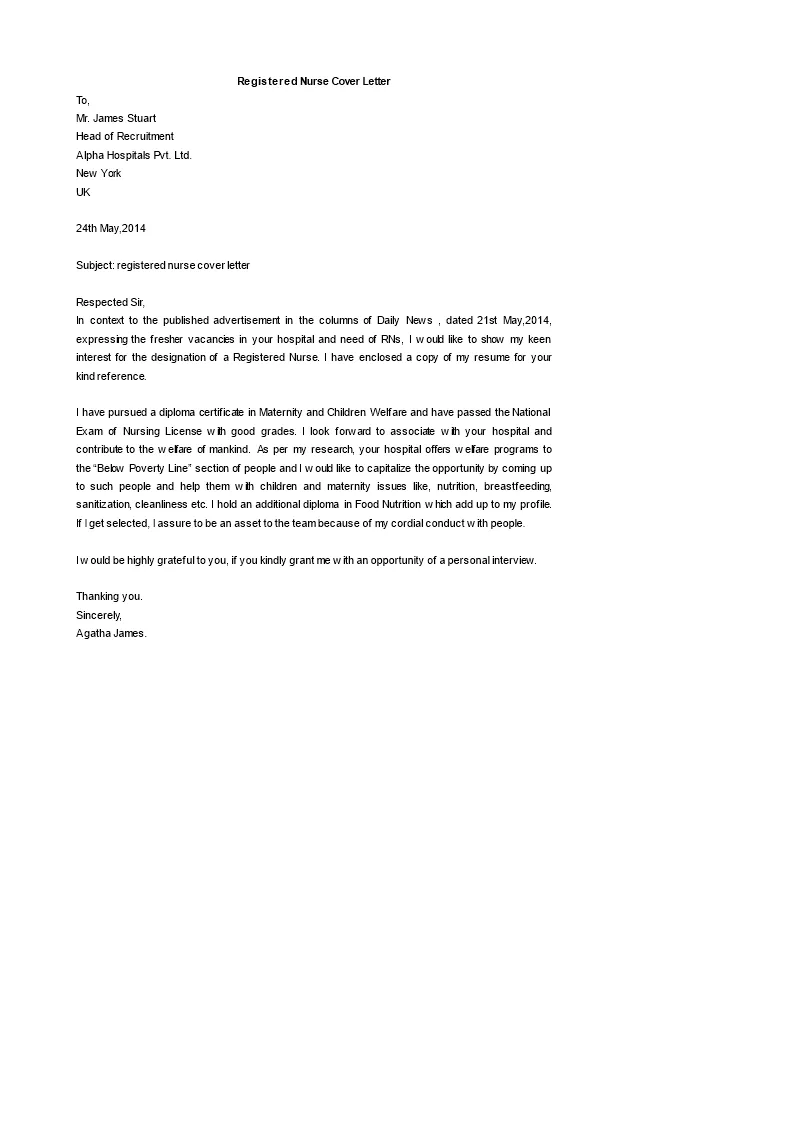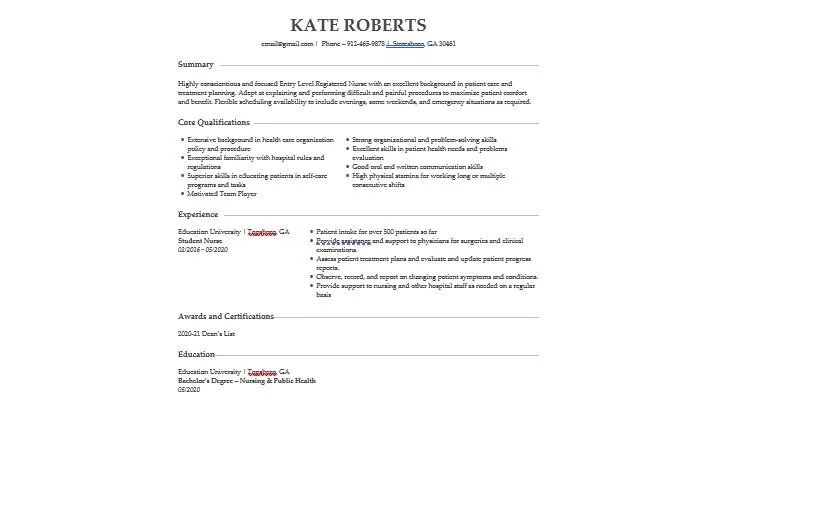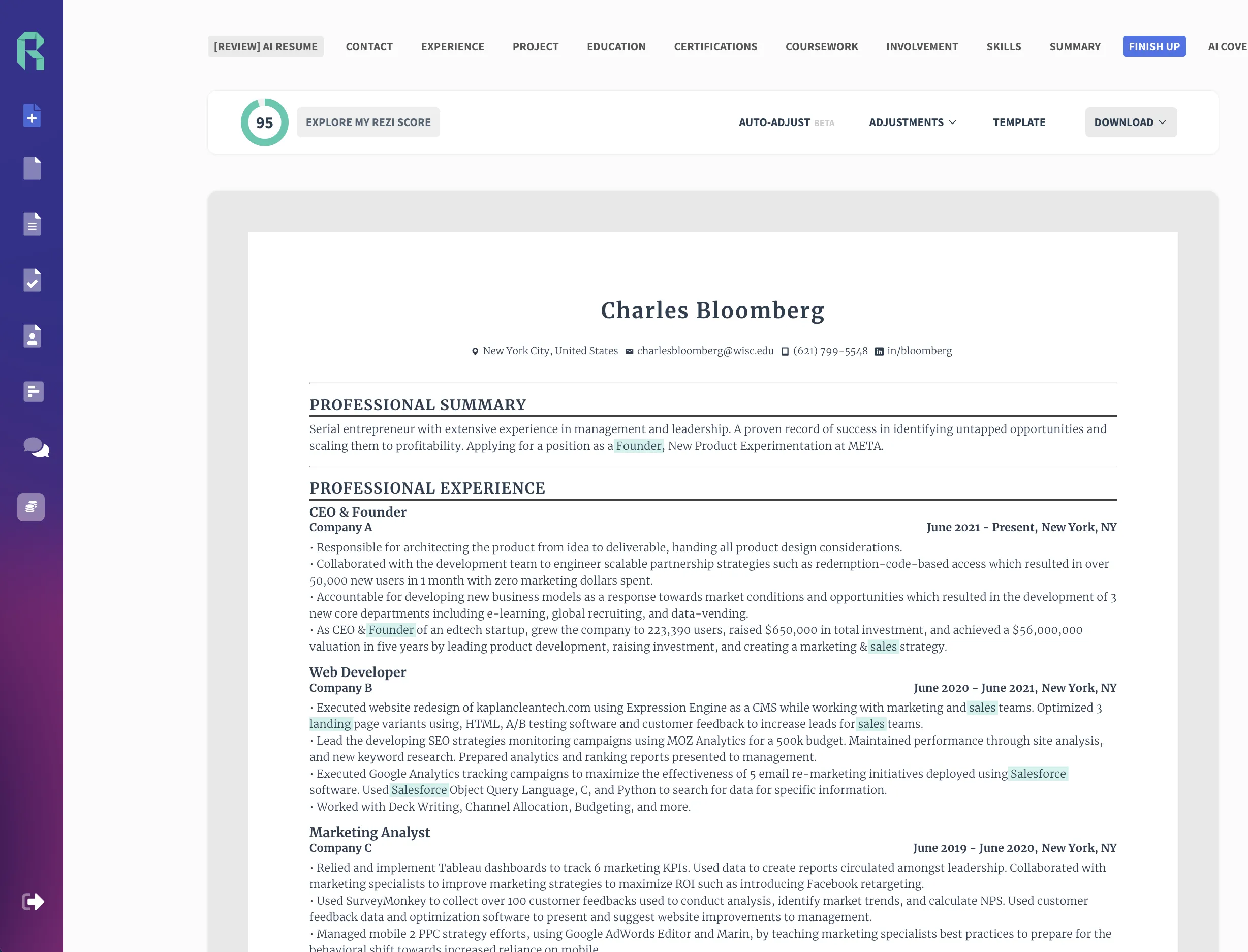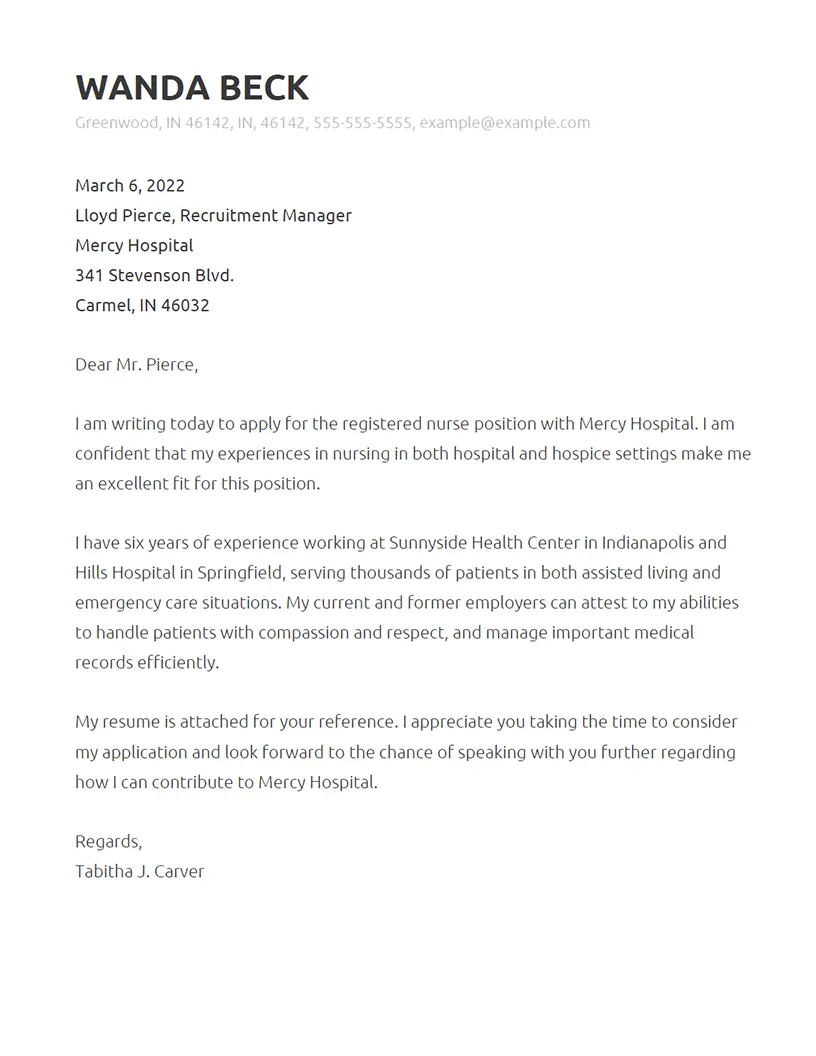In the competitive field of nursing, a well-crafted cover letter is your first opportunity to make a positive impression and secure an interview. As a Registered Nurse (RN), your resume showcases your clinical expertise, but the cover letter is where you highlight your personality, passion, and specific qualifications that align with the job requirements. It’s not just a formality; it’s a crucial tool for standing out from the crowd and demonstrating why you’re the ideal candidate for the position. A compelling cover letter can be the difference between getting an interview and having your application overlooked. This guide will walk you through crafting an RN cover letter that captures attention and showcases your best qualities.
Why Your RN Cover Letter Matters
Your RN cover letter serves as a vital introduction, allowing you to connect with the hiring manager on a personal level. It gives you the space to elaborate on your experience, explain your career goals, and express your enthusiasm for the role and the organization. Unlike a resume, which provides a factual overview, a cover letter enables you to tell a story, demonstrating how your skills and experiences directly meet the employer’s needs. This personalized approach is what makes a cover letter indispensable in any job application, particularly in a field where empathy, communication, and a genuine interest in patient care are paramount.
Grabbing Attention: The Opening Paragraph
The opening paragraph is your hook; it must immediately capture the reader’s attention. Instead of a generic greeting, personalize your letter by addressing the hiring manager by name, if possible. Then, clearly state the position you’re applying for and briefly mention where you saw the job posting. Use the opening lines to express your enthusiasm for the opportunity and quickly highlight a key achievement or skill that aligns with the job requirements. For instance, you might mention a specific patient care success or a skill that directly relates to the role’s responsibilities. This approach demonstrates that you’ve carefully reviewed the job description and are a well-suited candidate.
Highlighting Your Skills & Experience

The body of your cover letter should provide a more in-depth look at your skills and experience. Focus on the most relevant aspects of your career, aligning your qualifications with the needs outlined in the job description. Use specific examples to illustrate your abilities. For instance, instead of stating “I have excellent communication skills,” describe a situation where your communication skills led to a positive patient outcome. This might involve de-escalating a tense situation or successfully explaining complex medical information to a patient and their family. Furthermore, emphasize any specializations or areas of expertise that make you a strong fit for the role.
Showcasing Relevant Certifications
Nursing requires a wide range of certifications and specializations, and your cover letter is the perfect place to highlight these. Mention any certifications relevant to the position, such as Advanced Cardiac Life Support (ACLS), Pediatric Advanced Life Support (PALS), or specific certifications related to your specialty, like critical care or oncology. Be sure to include the certifying organization and the date of certification. Including your certifications demonstrates your commitment to professional development and ensures that you meet the qualifications for the role. Make sure to verify that your certifications are current and relevant to the job requirements.
Quantifying Achievements & Results
Where possible, quantify your achievements. Instead of saying “I improved patient satisfaction,” state “Improved patient satisfaction scores by 15% through implementing a new communication strategy.” Quantifiable achievements provide concrete evidence of your capabilities and the impact you’ve had in previous roles. This could include metrics such as reduced patient readmission rates, improved medication adherence, or successful implementation of new clinical protocols. Numbers add credibility and demonstrate that you are focused on results. Provide specific examples of how you have contributed to positive outcomes in the past.
Tailoring to the Specific Job

One of the biggest mistakes job seekers make is sending a generic cover letter. Each cover letter should be tailored to the specific job and the organization to which you are applying. Carefully review the job description and identify the key requirements, skills, and values the employer is seeking. Then, highlight your relevant experiences and skills, and show how your qualifications align with the needs of the role. Research the organization to understand its mission, values, and culture. Mentioning specific initiatives or values demonstrates that you are genuinely interested in the position and the organization, making a stronger impression on the hiring manager.
Demonstrating Passion for Nursing
Nursing is a profession driven by passion and compassion. Your cover letter should convey your genuine interest in nursing and your dedication to patient care. Share your motivation for becoming an RN, emphasizing what inspires you to provide excellent care. Discuss your career goals and how this opportunity aligns with your aspirations. Mentioning specific experiences, like particularly rewarding patient interactions or challenging cases that helped you grow as a nurse, is a great way to make your passion clear. Make your enthusiasm for nursing and the specific role evident throughout your letter.
Formatting for Readability
Clear formatting is essential to ensure your cover letter is easy to read. Use a professional font such as Times New Roman, Arial, or Calibri, with a font size between 10 and 12 points. Keep the letter concise, ideally no more than one page. Use clear headings, bullet points, and ample white space to break up large blocks of text. Use a formal tone and maintain a professional style throughout the letter. Proper formatting makes your cover letter visually appealing and significantly improves the reader’s experience, increasing the likelihood that your application will receive thorough consideration.
Proofreading & Polishing Your Letter

Proofreading is crucial. Errors in grammar, spelling, or punctuation can undermine your credibility and create a negative impression. Carefully review your cover letter for any mistakes. Use a spell checker, but don’t rely on it alone; many errors can slip through. Read the letter aloud to catch awkward phrasing or unclear sentences. If possible, have a friend or colleague review your letter for clarity and accuracy. This extra step can help catch errors you might have missed, and ensure your letter is polished and professional.
The Closing Paragraph & Call to Action
The closing paragraph should reiterate your interest in the position and express your eagerness to discuss your qualifications further. Thank the hiring manager for their time and consideration. Include a clear call to action, such as stating that you are available for an interview at their earliest convenience. Provide your contact information, including your phone number and email address, so the hiring manager can easily reach you. A strong closing leaves a lasting positive impression and encourages the hiring manager to take the next step in the hiring process.
Writing an effective cover letter is an essential step in your job search as a Registered Nurse. By following these guidelines, you can create a cover letter that grabs attention, highlights your skills and experience, and demonstrates your passion for nursing. A well-crafted cover letter is a powerful tool to secure that all-important interview. Remember to tailor each letter to the specific job and organization, and always proofread carefully. Good luck with your job applications!
